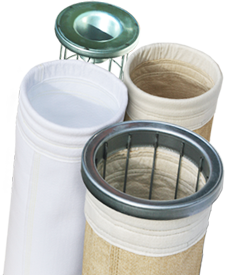Industrial filtration plays a crucial role in various industries, ensuring clean air, water, and processed materials. However, navigating the complex landscape of regulations surrounding industrial filtration can be daunting. Understanding and adhering to these regulations is crucial for ensuring legal compliance, protecting the environment, and maintaining operational efficiency.
Understanding the Regulatory Landscape
The specific regulations applicable to industrial filtration will depend on several factors, including the nature of your business, the materials you handle, and your geographic location. Some key regulatory bodies that influence industrial filtration include:
- Environmental Protection Agency (EPA): Sets national environmental standards for air and water pollution, with specific regulations impacting dust collector emissions and wastewater discharge.
- Occupational Safety and Health Administration (OSHA): Ensures safe working conditions for employees, with regulations relevant to dust exposure, respiratory protection, and hazardous material handling.
- National Fire Protection Association (NFPA): Develops fire safety standards and codes, including those concerning combustible dust hazards and fire protection for baghouses and dust collectors.
- Local and state regulations: Many states and municipalities have their own environmental and safety regulations that must be followed in addition to federal standards.
Understanding these regulatory agencies and their specific requirements is the first step towards achieving compliance.
Implementing Compliance Strategies
Once you have a clear understanding of the applicable regulations, you can begin to develop a comprehensive compliance strategy. This strategy should include the following key elements:
- Developing a Compliance Management System: This system should outline your procedures for identifying, understanding, and complying with all relevant regulations. It should include a process for regularly reviewing and updating your compliance program to reflect any changes in regulations or your business operations.
- Conducting Regular Audits and Inspections: Regularly auditing your operations and equipment ensures that you are meeting all regulatory requirements. This may involve inspecting your dust collectors, testing dust emissions, and monitoring air quality.
- Providing Training and Education: Employees who are knowledgeable about the applicable regulations and safe work practices are essential for maintaining compliance. Provide regular training on topics such as dust hazards, respiratory protection, and emergency procedures.
- Maintaining Proper Records and Documentation: Documenting your compliance efforts is crucial for demonstrating to regulatory agencies that you are meeting their requirements. This documentation should include records of inspections, training programs, and maintenance activities.
Partnering with Experts
Navigating the complexities of industrial filtration regulations can be challenging. Partnering with experienced professionals can significantly ease this burden and provide valuable guidance. Standard Filter, for example, offers expert assistance in a variety of areas related to regulatory compliance, including:
- Identifying relevant regulations and standards: Our team can help you understand the specific regulations that apply to your business and operations.
- Choosing compliant filter media: We can provide guidance on selecting the right filter media to meet your specific needs and comply with emissions regulations.
- Designing and installing compliant systems: Our engineers can design and install dust collector systems that meet all applicable safety and environmental standards.
- Providing ongoing support: We offer ongoing support to ensure that your filtration systems continue to operate in compliance with regulations.
By taking a proactive approach to compliance, you can protect your business, your employees, and the environment. Standard Filter is committed to helping you achieve your compliance goals and operate your industrial filtration systems safely and efficiently.
Conclusion:
Navigating the regulatory landscape in industrial filtration requires dedication, expertise, and a proactive approach. By implementing a comprehensive compliance management program, adopting a risk-based approach, and continuously improving processes, organizations can ensure legal compliance, protect the environment, and safeguard their employees and stakeholders. This, in turn, contributes to a sustainable and successful operation in the industrial filtration industry.


